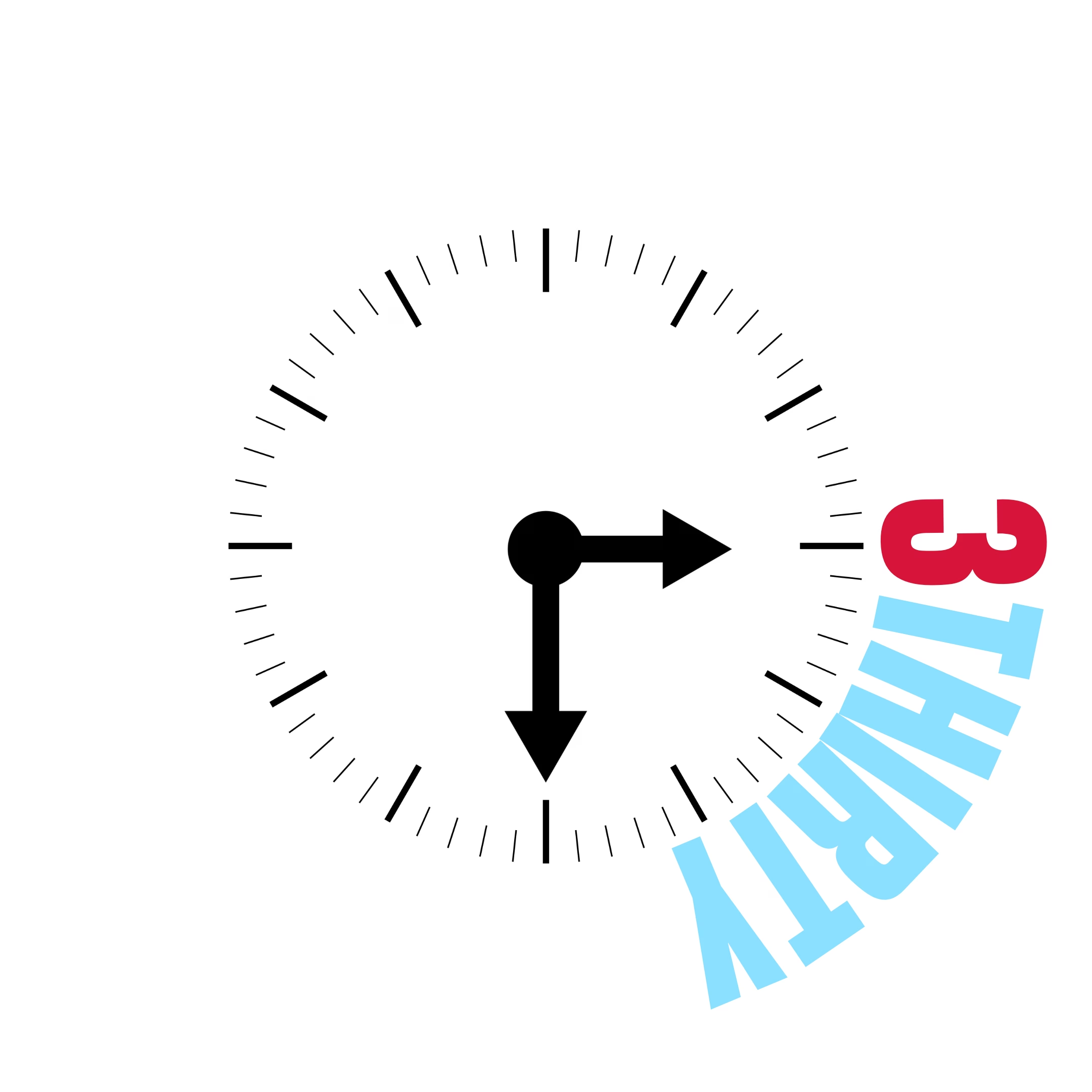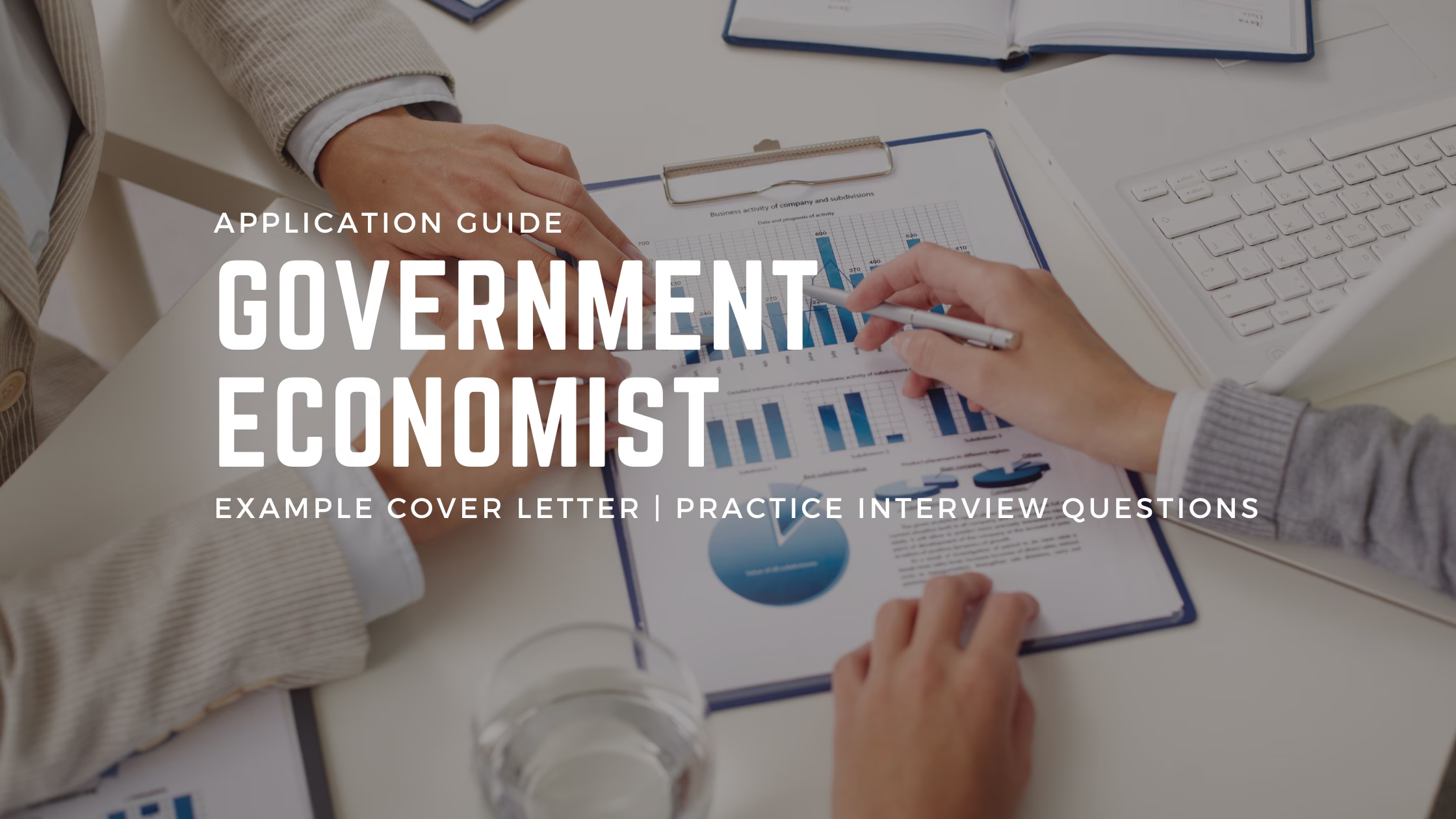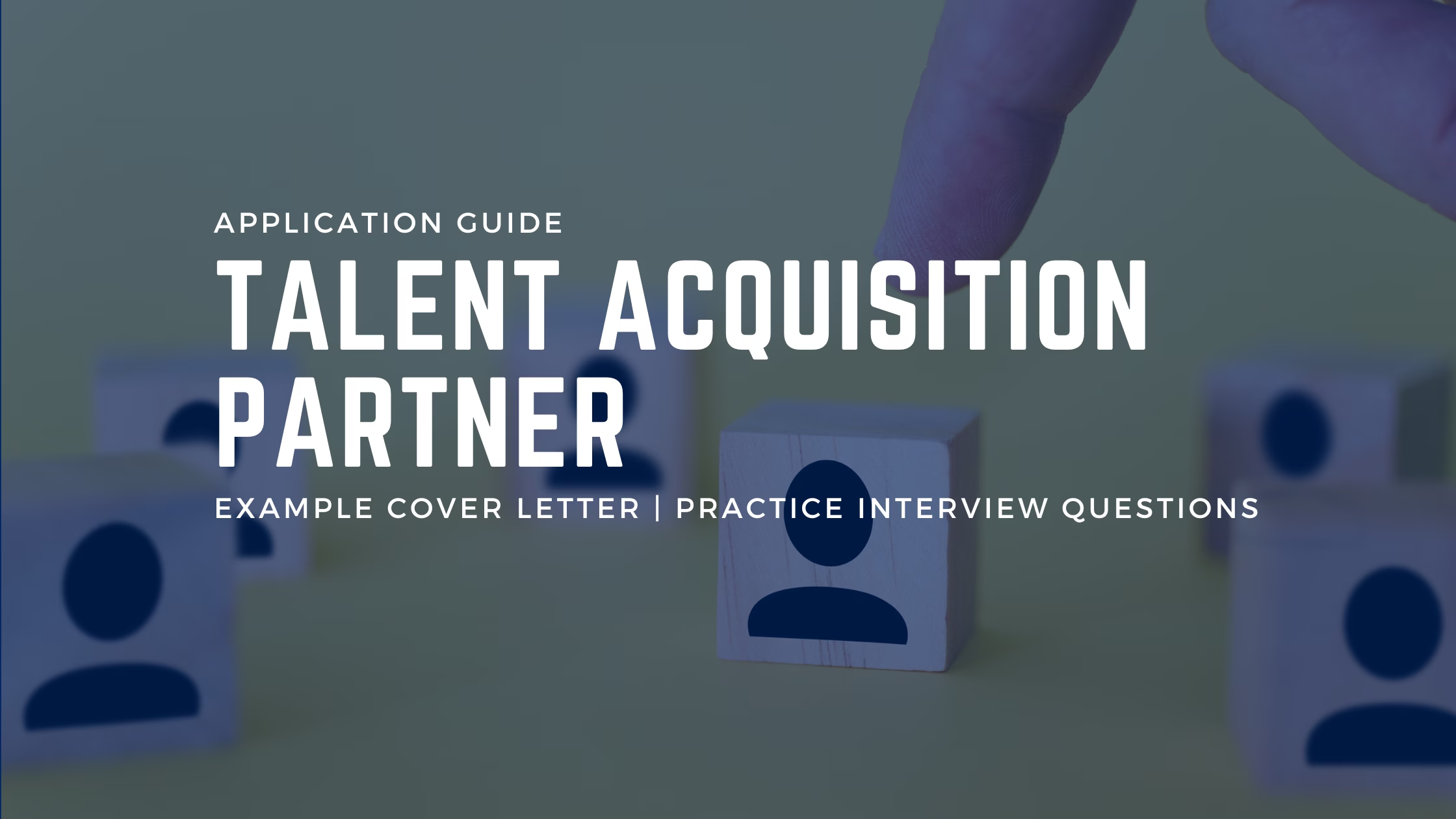Stepping into the role of a Principal Economist or Senior Economist with NSW Treasury means you’ll be at the forefront of shaping public finance and economic initiatives that impact millions of people. You’ll dive deep into research, quantitative analysis, and policy development—core tasks that define how resources are allocated and how government programs can be improved over time.
In this position, you’ll tackle pressing challenges like microeconomic reform, tax policy, and revenue forecasting. Your work will influence key decisions made at the NSW Treasury and beyond, supporting well-informed economic frameworks for the NSW Public Sector.
What if your economic expertise could directly influence policies that drive productivity, sustainability, and public sector efficiency? As a Senior Economist at NSW Treasury, you’ll contribute to major economic reforms while growing your career in one of Australia’s most influential government agencies.
Let’s walk through how to craft an application that sets you apart.
If you’re new to public sector recruitment, check out this unofficial guide to NSW Public Sector recruitment for more insider tips and use this free government cover letter template to get your application started.
Table of Contents
Economist Pay and Job Overview
| Position Title | Senior Economist NSW Treasury Principal Economist NSW Treasury |
| Organisation/Entity | Treasury |
| Job Location | Sydney CBD (Flexible) |
| Work Type | Ongoing/Temporary – Multiple roles available |
| Base Pay | $125,693 – $168,130 plus super and leave loading |
| Closing Date | 26 March 2025, 9:59am |
About the NSW Treasury Economist Recruitment
NSW Treasury is currently recruiting for multiple Senior Economist (Grade 9/10) and Principal Economist (Grade 11/12) positions.
While the roles are similar, they differ in the level of responsibility and expertise required. This guide will walk you through the application process for both positions. The process itself is the same, but you’ll need to tailor your application to highlight the specific capabilities required for each role.
If you have a strong background in economics, consider applying for both positions. While you’ll need to submit separate applications, the same hiring team will oversee the process, ensuring a coordinated and streamlined experience.
Senior Economist – Shape the Future of NSW’s Economy
The Productivity Reform Branch and Property & Revenue Initiatives Branch are seeking Senior Economists to join their dynamic teams. In this role, you will play a pivotal part in shaping economic policies, delivering high-quality analysis, and providing strategic advice to government and NSW Treasury executives.
Your typical day will be diverse and impactful, involving:
- Conducting independent research and developing evidence-based policy recommendations.
- Managing projects, including scoping, planning, and risk mitigation.
- Performing quantitative analysis, economic modelling, and financial forecasting.
- Preparing briefings, reports, and presentations that align with Treasury’s strategic priorities.
- Collaborating with key stakeholders across Treasury and the NSW Government to support policy development.
Beyond technical expertise, success in this role requires strong communication and negotiation skills. You will work across divisions, contribute to cross-agency initiatives, and help advance the broader goals of NSW Treasury’s Economic Strategy and Productivity Group.
As a Senior Economist, you will be part of either the Markets & Regulation Division or the Revenue Division, playing a key role in supporting economic productivity and sustainable revenue policy.
Principal Economist – Driving National-Level Economic Reform
The Federal Financial Relations Branch, within the Revenue Division, plays a crucial role in shaping NSW’s financial interests at the national level. This branch ensures that Australia’s economic framework supports NSW in delivering improved wellbeing, productivity reforms, and fair funding agreements.
In this role, you will be responsible for:
- Advising on federal financial relations, ensuring NSW secures a fair share of national funding.
- Researching and analysing the distribution of the national GST pool and Australia’s Horizontal Fiscal Equalisation (HFE) system.
- Acting as a liaison between NSW Treasury and the Commonwealth Grants Commission, particularly in annual GST determinations.
- Leading the delivery of high-quality economic analysis, assessing financial and economic impacts, and guiding reform priorities.
- Supporting GST revenue forecasting and stakeholder engagement to drive informed policy decisions.
As a Principal Economic Advisor, you will have the opportunity to influence critical national economic reforms and represent NSW Treasury in federal financial discussions. You will be part of the Economic Strategy & Productivity Group, working within the Revenue Division, where your insights will help shape long-term economic stability for NSW.
Challenges for Principal and Senior Economist NSW Treasury
The Principal Economist role presents several key challenges, requiring the ability to perform tasks with accuracy under pressure and within tight deadlines. The role operates in a complex and dynamic environment, where information is often imperfect or incomplete, making it essential to navigate ambiguity and refine shifting priorities. Managing competing stakeholder interests on sensitive economic and financial issues is a crucial aspect of the position, as is advocating Treasury’s position effectively while balancing diverse perspectives.
For a Senior Economist, challenges centre on delivering results that not only meet corporate, public policy, and financial management objectives but also gain stakeholder support. The role demands the ability to build and maintain strong working relationships with key stakeholders while working through complex and uncertain scenarios. At times, decisions must be made with limited information, requiring both sound judgement and adaptability. Additionally, a significant part of the role involves translating complex economic analysis into clear, accessible insights, ensuring that recommendations are well understood and actionable for diverse audiences.
Both roles require agility in handling high-pressure environments, strategic problem-solving, and the ability to communicate and influence effectively within the NSW Treasury and broader government landscape.
Why this is a great opportunity
Why might you want to join the NSW Treasury? Here are a few compelling reasons:
- Multiple Roles: With several positions available, your chances of securing a job offer are significantly increased.
- Significant Impact: Your work will directly influence government economic strategies, shaping policies that affect the state’s financial future.
- Professional Growth: Gaining experience in these specialised roles positions you as a strong candidate for future executive opportunities.
- Flexibility: Enjoy flexible work arrangements, including modern office spaces in Sydney and remote-friendly options.
- Government Pay and Benefits: Benefit from a 35-hour standard workweek with flex time accrual, ongoing learning through expert-led sessions and online training, wellbeing programs to support your mental and physical health, and various leave options, including paid parental and carers leave.
- Strategic Influence: Play a key role in shaping major reforms in tax policy, microeconomic improvements, and productivity—critical drivers of state-wide economic development.
- Talent Pool: If you don’t get an offer for this vacancy, you might get placed in the talent pool – meaning you can be pre-qualified for similar roles in NSW Treasury.
NSW Treasury Economist Application Requirements
Application Process
This role needs to follow the NSW Public Sector Recruitment process. To apply you will need:
- Resume: Prepare a succinct CV that highlights all relevant skills and experience.
- Cover Letter: This is optional for this role, but it is your best chance a landing an interview. Make sure you write your cover letter to highlight why you’re the perfect fit for this job.
- Address Pre-Screening Questions: Focus on your background in financial modelling, tax policy, or microeconomic reform, as highlighted in the job ad. Although specific questions aren’t provided here, expect to elaborate on your knowledge and quantitative skills.
- Submit via the I Work for NSW Jobs Platform: Ensure your application is lodged before 9:59am on the closing date (26 March 2025).
- Shortlisting & Interview: If shortlisted, you’ll be invited to a structured interview and possibly additional assessments (e.g., a case study or technical tasks).
Remember: Always tailor your application to the role, showcasing relevant experiences and achievements that align government economist skills.
Essential Role Requirements for NSW Treasury Economists
In your cover letter, you must clearly demonstrate that you meet the essential requirements of the role.
For the Principal Economist role, you need to show that you meet the following criteria:
- Tertiary qualifications in Economics, Statistics, Public Policy, Law, or equivalent relevant experience.
- Proven experience in providing strategic policy or commercial advice and/or economic analysis in a data-driven environment with a strong customer focus.
- Ability to lead and motivate a team to analyze data, apply critical perspectives across diverse policy issues, and draw inferences to support policy advice and/or economic and revenue forecasts.
- Advanced communication skills to effectively convey technical and complex information to various audiences—including the Treasurer and senior executives—through verbal, written, and visual formats.
For the Senior Economist role, you must demonstrate:
- Proficiency in economics, econometrics, or related quantitative fields. (Tertiary qualifications are highly regarded but not essential if you can demonstrate this knowledge or experience.)
- Experience in data analysis and modelling tools such as RStudio, Stata, Python, or GIS software.
- Ability to apply quantitative methods to data for problem-solving and policy advice, with experience in areas such as Economic or financial modelling, tax policy, forecasting, cost-benefit analysis, regulatory evaluation, and economic policy advice.
- Capability to work across diverse issues to support economic and/or policy advice, with experience in microeconomic reform, tax policy, market analysis, or policy/program evaluation being highly regarded.
Ensuring your cover letter directly addresses these criteria will strengthen your application and increase your chances of success.
Online Application Questions for Economist Roles with NSW Treasury
When applying for a government job, it’s important to start the online application process early. This allows you to review all the required fields and questions in advance—many of which may not be explicitly mentioned in the job advertisement.
To assist candidates, I’ve logged in and reviewed the online application questions for economist roles with NSW Treasury. Below are the key questions for each position:
Questions for Both Roles:
- Motivation: Please briefly outline your motivation for applying for this role.*
- LinkedIn Profile: If you have a LinkedIn profile, please share the URL to your public profile.*
Senior Economist – NSW Treasury
- Technical Knowledge & Experience: Describe your knowledge or professional experience in economics, econometrics, statistics, actuarial studies, tax policy, or other relevant fields that use quantitative methods (e.g., science, data analytics, or engineering). Where applicable, provide details on your experience in:
a) Economic or financial modelling, tax policy, forecasting, cost-benefit analysis, regulatory evaluation, and providing economic policy advice.
b) Data analysis and proficiency with tools such as RStudio, Stata, Python, and GIS software. - Practical Application: Provide an example of how you have applied quantitative methods to data to analyse economic or policy problems and offer advice on potential solutions.
Principal Economist – NSW Treasury
- Essential Requirements: Describe how your skills and experience align with the “essential requirements” listed in the role description.*
- Relevant Experience: Based on your resume/CV, which past roles or experiences do you consider most relevant to this position?*
- Educational Background: List only the tertiary qualifications you hold that are relevant to this role.*
By preparing your responses in advance, you can ensure a well-structured and compelling application that highlights your suitability for the position.
Application Checklist
| Checklist Item | Completed? |
|---|---|
| Read the full role description online | ☐ |
| Update your CV | ☐ |
| Draft your government cover letter | ☐ |
| Get your cover letter reviewed | ☐ |
| Submit your application online, including completing the online questions | ☐ |
Candidate Profile
Meet Sarah, a seasoned economist with several years of experience in private consultancy.
She has advised multiple corporate clients on tax structures and performed economic forecasting for major infrastructure projects. Now, Sarah wants to transition to the NSW Public Sector as a Senior Economist NSW Treasury—attracted by the chance to make large-scale policy contributions.
With a well-rounded background in government economics, plus strong research and data analytics skills, she’s confident this position aligns perfectly with her desire to influence state-wide economic reform. Sarah especially values the opportunity to collaborate on microeconomic initiatives and shape property tax regulations that have a tangible impact on local communities.
Example Cover Letter for Economist Position in NSW
Easy-to-follow prompts and formatting mean you can focus on substance, not guesswork. Get straight to the key points public sector hiring managers needs to see.
Dear Hiring Manager,
I am writing to apply for the role of Senior Economist position at NSW Treasury.
As a seasoned economist with several years of experience in private consultancy, I have had the opportunity to advise diverse corporate clients on tax structures and perform economic forecasting for major infrastructure projects. My goal is to transition into the public sector, where I can help shape state-wide economic reforms and create tangible impacts on local communities—particularly through microeconomic initiatives and property tax regulation.
Throughout my career, I have honed my proficiency in economics, econometrics, and related quantitative fields. In one significant engagement for our firm (Situation), my team was tasked with reviewing and optimising the fiscal impact of a multinational client’s investment strategy (Task). Leveraging my expertise in econometrics, I built a complex regression model to isolate key variables affecting investment returns (Action).
The results offered the client clear recommendations on capital allocation, which ultimately reduced their financial risk exposure by 15% (Result). This experience reinforced my passion for data-driven policy, illustrating how disciplined economic analysis can guide strategic decisions at scale.
I also bring extensive experience using data analysis and modelling tools, including RStudio and Stata. During a recent project (Situation), a client local government agency sought to forecast regional growth for an infrastructure venture while measuring potential socioeconomic outcomes (Task). I led a small analytics team to compile large datasets, cleaning and structuring them in RStudio and validating findings in Stata (Action).
By cross-verifying results through both platforms, we refined the forecast’s accuracy and provided robust recommendations for the project’s development schedule, ultimately saving the client approximately $2 million by avoiding misallocated resources (Result).
My ability to apply quantitative methods for problem-solving and policy advice is exemplified by my work in evaluating proposed tax reform for input into a non-government organisation’s policy white paper (Situation). Under tight deadlines (Task), I designed and implemented a cost-benefit analysis model that integrated macroeconomic indicators with micro-level financial data (Action). This methodology captured a more holistic view of potential reform outcomes, enabling senior stakeholders to present evidence-based strategies to relevant regulatory bodies (Result). This experience underscored how critical thoughtful, data-informed approaches are for shaping sound economic policy.
In addition, I pride myself on my capability to work across diverse policy issues, a skill I developed while advising on microeconomic reforms and market analyses (Situation). On one occasion, I was appointed to a cross-functional group tasked with assessing the impacts of potential property tax adjustments on housing affordability (Task). Collaborating with property and city planning teams, community stakeholders, and municipal finance experts, I synthesised multiple perspectives into a unified analytical framework (Action). The final recommendations contributed to a more balanced tax proposal that helped maintain revenue stability while considering local housing needs (Result).
I am excited about the prospect of joining NSW Treasury as a Senior Economist, where I can draw on my broad experience in economic analysis, tax policy, and data-driven insights to support impactful reform initiatives.
Thank you for considering my application. I would welcome the opportunity to discuss how my background aligns with your needs and how I can contribute to the Treasury’s vital work.
Sincerely,
Sarah
Explain the STAR Technique
The STAR Technique—Situation, Task, Action, Result—is a structured approach to demonstrating your capabilities in public sector recruitment. Employers in the NSW Public Sector seek not just technical expertise, but also clear, real-world examples of how you’ve applied your skills. By breaking down your experiences into these four components, you provide interviewers with a coherent, detailed narrative. In the examples above:
- Situation: Set the context—what was the problem or environment?
- Task: What goal or challenge needed to be addressed?
- Action: Outline the steps you took or the methods you used.
- Result: Emphasise the measurable outcome or lessons learned.
This approach is especially powerful for a Economist role because you can showcase how you apply advanced data analysis, policy expertise, and stakeholder management skills to deliver tangible outcomes.
How to Prepare for a Public Sector Interview
Interview panels in the NSW Public Sector often focus on whether you can demonstrate key capabilities while handling real-world economic issues. Follow these steps to excel:
- Review the Focus Capabilities: Study the role description and pinpoint the exact capabilities needed— such as deliver results, influence and negotiate, finance and project management.
- Brainstorm Examples: Collect real-life scenarios from your career where you’ve demonstrated these capabilities in government finance, economics or related fields.
- Match to Indicators: Ensure each example aligns with the behavioural indicators outlined in the focus capabilities.
- Use the STAR Method: Structure your answers for clarity, focusing on outcomes related to public sector policy or economic analysis.
- Practise & Use Notes: Rehearse aloud, and if permitted, bring key points to reference. Familiarise yourself thoroughly so that you sound natural and prepared.
Here are three possible interview questions you might face for a Senior Economist NSW Treasury position:
- Describe a time you had to conduct a complex economic analysis under tight deadlines. How did you manage the workflow?
- Share a policy reform project you’ve been involved in. What hurdles did you face, and how did you address them?
- How do you ensure your economic forecasts remain accurate and relevant to current market conditions?
Example of STAR-Aligned Talking Points: For a question about managing an economic analysis project, highlight the Situation (e.g., new housing policy needed), the Task (gather data to evaluate policy impact), the Action (build advanced economic models and consult with stakeholder agencies), and the Result (proposed policy saved millions in administrative costs and gained public support).
Looking for more guidance? Be sure to download our public sector interview questions and answers workbook to further refine your preparation.
Get Ready To Apply For NSW Economist Opportunity
Time to start your application. If you are new to government recruitment, read these guides:
- How to write a cover letter for government jobs
- The difference between private and public sector job interviews
- Unofficial guide to NSW public sector recruitment.
You can start your application right now, using the free government cover letter template.
Once you have a draft started, get it reviewed by a government hiring expert. This is the fastest way to make your application great.
When it’s all ready – click here to apply and submit your application before 9:59am on 26 March 2025.





